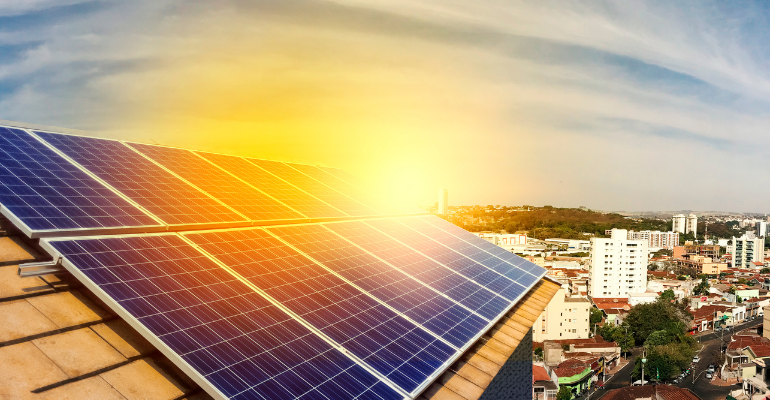
Solar energy has emerged as a game-changer in the field of renewable energy. Solar power has gained significant traction in recent years due to its countless benefits and minimal environmental impact. One of the key advantages of solar energy is its long lifecycle, which ensures reliable and sustainable power generation for an extended period. In this article, we will explore how solar energy has a long lifecycle and why it has become a preferred choice for clean and renewable electricity generation.
The Solar Energy Lifecycle: From Sunlight to Electricity
Solar energy harnesses the power of the sun using photovoltaic (PV) cells. Typically made of silicon, these cells convert sunlight directly into electricity through the photovoltaic effect. The solar energy lifecycle begins with the absorption of sunlight by the PV cells, which excite electrons and generate an electric current.
The Role of Solar Panels in Power Generation
Solar panels play a crucial role in the solar energy lifecycle. These panels consist of numerous PV cells interconnected in series and parallel configurations. When sunlight falls on the solar panels, the PV cells absorb photons, creating a flow of electrons. This flow generates a direct current (DC), which can then be converted into alternating current (AC) using inverters.
Maximizing Efficiency: Tracking the Sun's Path
Solar panels are often equipped with tracking systems that follow the sun's path throughout the day to maximize the efficiency of solar power systems. The amount of sunlight absorbed is maximized by orienting the solar panels to face the sun directly, resulting in higher energy output. This tracking mechanism helps optimize energy generation and contributes to the long lifecycle of solar energy systems.
Key Factors Influencing the Long Lifecycle of Solar Energy
Several factors contribute to the long lifecycle of solar energy systems. Let's explore some of the primary factors that ensure the longevity and sustainability of solar power generation.
1. Durability of Solar Panels
Solar panels are designed to withstand various environmental conditions. They are built to be durable and resistant to factors like rain, wind, snow, and extreme temperatures. High-quality solar panels are manufactured with robust materials that can endure harsh weather conditions and operate efficiently for several decades.
2. Minimal Maintenance Requirements
Solar energy systems have minimal maintenance requirements compared to conventional power generation methods. Once installed, solar panels generally require periodic cleaning to remove dirt and debris that may accumulate over time. Routine inspections and checks are also recommended to ensure optimal system performance. With proper maintenance, solar panels can continue to produce electricity efficiently for many years.
3. Reliability and Performance
Solar energy systems have proven highly reliable in delivering consistent electricity production. The advanced technology in solar panels and inverters ensures stable and reliable performance throughout their lifecycle. With minimal degradation in efficiency over time, solar panels can continue to generate electricity at high levels for decades, making them a reliable long-term investment.
4. Warranty and Lifespan
Most reputable solar panel manufacturers offer warranties ranging from 20 to 25 years. These warranties guarantee that the solar panels will maintain a certain level of performance throughout the specified period. Moreover, solar panels often have an expected lifespan of 25 to 30 years, ensuring prolonged power generation and a long-term return on investment for individuals and businesses.
FAQ 1: How long do solar panels last?
Solar panels typically have a lifespan of 25 to 30 years or more. They can continue to generate electricity efficiently throughout their lifespan with proper maintenance and care.
FAQ 2: Do solar panels require much maintenance?
Solar panels have minimal maintenance requirements. Regular cleaning to remove dirt and debris and periodic inspections ensure optimal performance and longevity.
FAQ 3: What happens if a solar panel stops working?
If a solar panel stops working or exhibits decreased performance, it is essential to contact a professional solar technician. They can diagnose and resolve any issues with the system, ensuring it continues to generate electricity efficiently.
FAQ 4: Are solar panels affected by extreme weather conditions?
Solar panels are designed to withstand various weather conditions, including rain, wind, and snow. High-quality panels are manufactured to be durable and can endure extreme temperatures as well.
FAQ 5: Can solar panels generate electricity on cloudy days?
Yes, solar panels can still generate electricity on cloudy days. While the energy output may be lower than on sunny days, solar panels can convert diffused sunlight into electricity, allowing for continuous power generation.
FAQ 6: Is it possible to recycle solar panels?
Yes, it is possible to recycle solar panels. Many recycling programs and facilities exist to ensure the proper disposal and recycling of solar panels at the end of their lifecycle.
Solar energy's long lifecycle is a testament to its reliability and sustainability. Solar energy systems can generate clean and renewable electricity for several decades with the durability of solar panels, minimal maintenance requirements, and reliable performance. By harnessing the sun's power, we can contribute to a greener future while enjoying the benefits of long-term energy independence. Embracing solar energy is a wise choice that promotes environmental stewardship and economic prosperity.